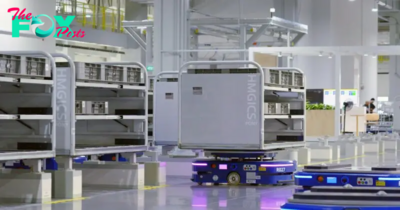Technology
Why We Think Elon Musk Is An Example Of How Structural Racism Works: 5 Things To Know
Elon Musk, the South African-born American entrepreneur, may be an imposing figure in the realms of technology and innovation, but is he also an example of how structural racism works?
Renowned for co-founding PayPal, spearheading SpaceX’s endeavors in space exploration, taking over Twitter (now X), and revolutionizing the electronic automotive industry with Tesla, Musk’s influence can be felt in various sectors. However, beneath the surface of his entrepreneurial achievements lies a complex narrative intertwined with the dynamics of structural racism.
Here are five things to know.
1. Inside Structural Racism
Structural racism thrives through institutional mechanisms deeply entrenched within society. Historical injustices such as redlining and racialized residential segregation continue to reverberate, perPetuating wealth disparities and Health inequities among marginalized communities, according to the New England Journal of Medicine.
Structural racism thrives through the enforcement of racist policies deeply embedded in multiple sectors of society, fueling ongoing racial disparities in health outcomes and beyond. A lack of material power prevents Black Americans from institutionalizing any anti-white ideas, even if such ideas existed within our community.
As professor, author and media personality Michael Eric Dyson explained in 2012, “Racism presupposes the ability to control a significant segment of the population economically, politically, and socially by imposing laws, covenants, and restrictions on their lives. Black people haven’t had the capacity to do that. Can we be bigoted? Yes. Can we be prejudiced? Yes. Racists? No.”
2. Power Dynamics And Privilege
Musk’s speedy trajectory in the Business world highlights the disparities in access to opportunities and resources based on racial identity.
There are various stories about Musk’s childhood, with some saying his father, Errol Musk, owned an emerald mine, had one of the largest homes in Pretoria, South Africa, and that Musk was raised in wealth. This is something Musk has disputed.
“I left South Africa by myself when I was 17 with just a backpack & suitcase of books,” Musk tweeted in 2019 “Worked on my Mom’s cousin’s farm in Saskatchewan & a lumber mill in Vancouver. Went to Queens Univ with scholarship & debt, then same to UPenn/Wharton & Stanford.”
3. Amplification Of Racist Narratives
Musk’s online presence, particularly on social media platforms like X, has been marred by the amplification of racist narratives and pseudo-scientific claims. By retweeting race scientist adherents and spreading misinformation about racial minorities’ intelligence, Musk contributes to the dissemination of harmful stereotypes and reinforces existing power dynamics rooted in racism.
4. Legal And Corporate Accountability
Musk’s companies, including Tesla, have faced allegations of racial discrimination and harassment in the workplace. Despite settlements and legal battles, the underlying issues of systemic racism within corporate environments persist.
Earlier this month, Tesla settled a racial discrimination lawsuit for an undisclosed sum, it followed a court judgment of $3.2 million awarded to a former Black Tesla elevator operator. This settlement was significantly lower than the initial jury verdict of $137 million, which was later deemed excessive, Time reported.
In September 2023, the U.S. Equal Employment Opportunity Commission filed a lawsuit against Tesla, accusing the company of permitting widespread racist harassment and retaliating against employees who reported discrimination.
5. Dismissal Of Racial Issues
Musk’s public statements often downplay the significance of race-related discourse, dismissing efforts to address systemic racism as divisive or irrelevant. His opposition to diversity, equity, and inclusion initiatives underscores a disregard for the structural barriers faced by marginalized communities. By minimizing the significance of racial inequities, Musk perPetuates a narrative that undermines efforts toward societal progress and racial justice.
Musk, who for months and years of posting against what he terms the “woke mind virus,” revealed insights into his libertarian ideology during an interview with former CNN host Don Lemon, before killing Lemon’s new X show. The billionaire expressed his belief that discussions surrounding racism and discrimination should predominantly focus on the past, Fortune reported.
“Being aware of inequities in society is fine, of course,” Musk said. “But trying to make everything a race issue is divisive and corrosive to society.”
He also said, “If you study History broadly, everyone was a slave. We are all descended from slaves, all of us. It’s just a question of when. Was it more recent or less recent? What future do we want? Is this something we want to make a constant part of our dialogue forever? Or do we want to move on and treat everyone as an individual?”
Tesla CEO Elon Musk, Sept. 25, 2020, in Los Angeles (zz/Wil R/STAR MAX/IPx)
-

 Technology1d ago
Technology1d agoBreaking up Google? What a Chrome sell-off could mean for the digital world | The Express Tribune
-

 Technology1d ago
Technology1d agoAI harm is often behind the scenes and builds over time – a legal scholar explains how the law can adapt to respond
-

 Technology1d ago
Technology1d agoNewborn planet found orbiting young star, defying planet formation timeline | The Express Tribune
-

 Technology1d ago
Technology1d agoAwkwardness can hit in any social situation – here are a philosopher’s 5 strategies to navigate it with grace
-

 Technology1d ago
Technology1d agoNo need to overload your cranberry sauce with sugar this holiday season − a food scientist explains how to cook with fewer added sweeteners
-

 Technology2d ago
Technology2d agoTeslas are deadliest road vehicles despite safety features: study | The Express Tribune
-

 Technology2d ago
Technology2d agoThere Is a Solution to AI’s Existential Risk Problem
-

 Technology2d ago
Technology2d agoUS pushes to break up Google, calls for Chrome sell-off in major antitrust move | The Express Tribune



























